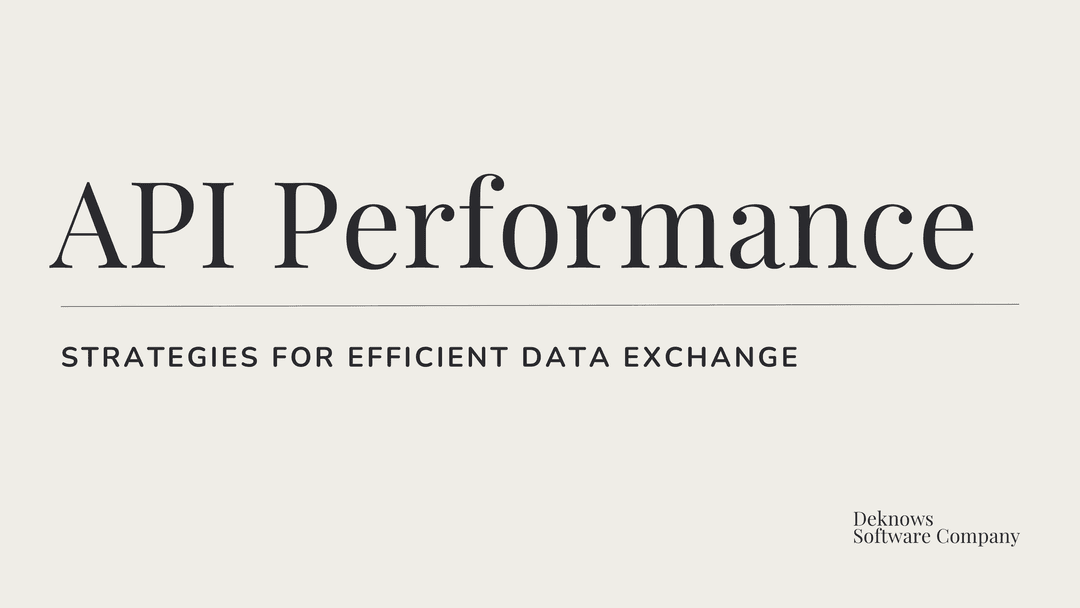Optimizing API Performance: Strategies for Efficient Data Exchange
Read time: 7 minutes
Hamad K
Aug 12, Mon

Ensuring efficient API performance is crucial for delivering a seamless user experience. This article delves into advanced strategies for optimizing API performance, focusing on techniques to enhance speed, reduce latency, and handle high volumes of data effectively.
1. Implementing Caching Strategies
Caching is a powerful technique to boost API performance by reducing the need to process repetitive requests. Learn how to leverage different caching mechanisms, including server-side, client-side, and CDN caching, to minimize response times and reduce server load.
2. Efficient Data Handling with Pagination
Handling large datasets efficiently is key to maintaining performance. Explore best practices for implementing pagination and limiting data retrieval to ensure that your APIs respond quickly even with substantial data volumes.
3. Leveraging Compression Techniques
Data compression can significantly reduce the size of API responses, speeding up data transfer and improving performance. Discover various compression techniques and how to apply them to both request and response data.
4. Asynchronous Processing and Webhooks
Asynchronous processing allows APIs to handle long-running tasks without blocking the main thread. Learn how to implement asynchronous operations and use webhooks for real-time updates, reducing wait times and enhancing user experience.
5. Optimizing Database Queries
The performance of your APIs heavily relies on how efficiently they interact with your databases. Dive into strategies for optimizing database queries, indexing, and connection pooling to ensure that data retrieval is swift and efficient.
6. Monitoring and Analyzing API Performance
Continuous monitoring is essential for identifying and addressing performance bottlenecks. Explore tools and techniques for tracking API performance, analyzing metrics, and making data-driven improvements.
7. Best Practices for Error Handling
Effective error handling ensures that your APIs fail gracefully and provide useful feedback to clients. Learn best practices for designing robust error-handling mechanisms that improve reliability and ease of troubleshooting.
Interested in Publishing your knowledge and sharing it with the world?


We thrive by partering with visionary brands and driven individuals.
Say hello 👋